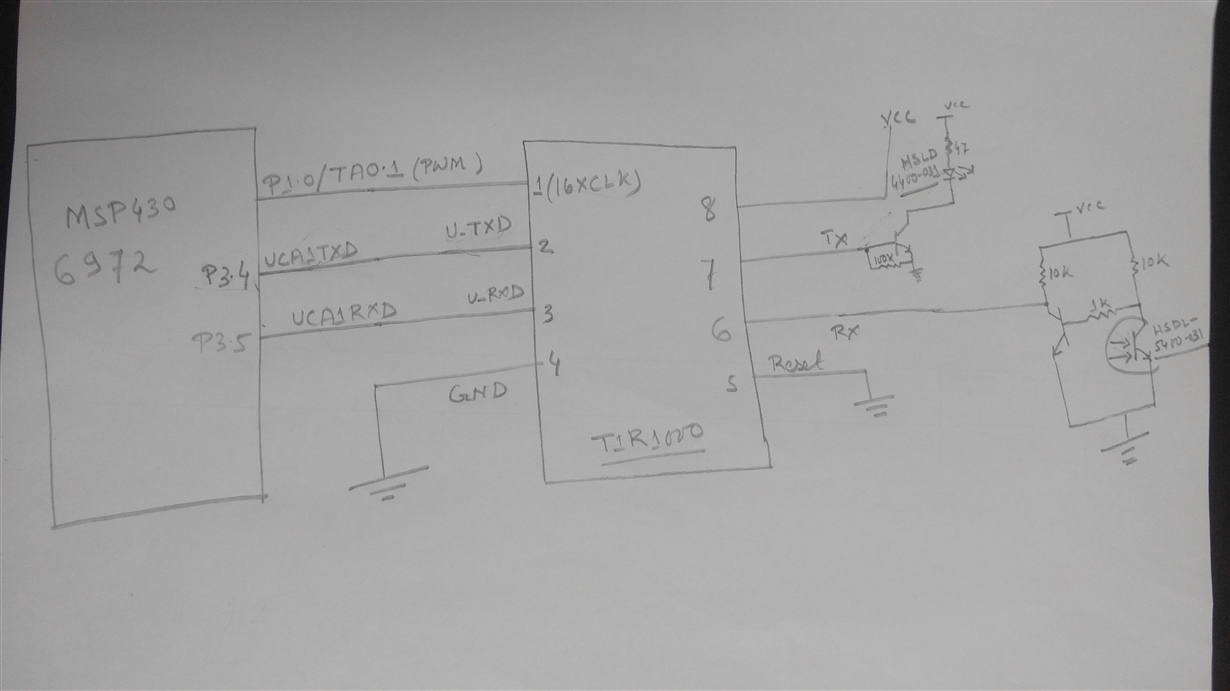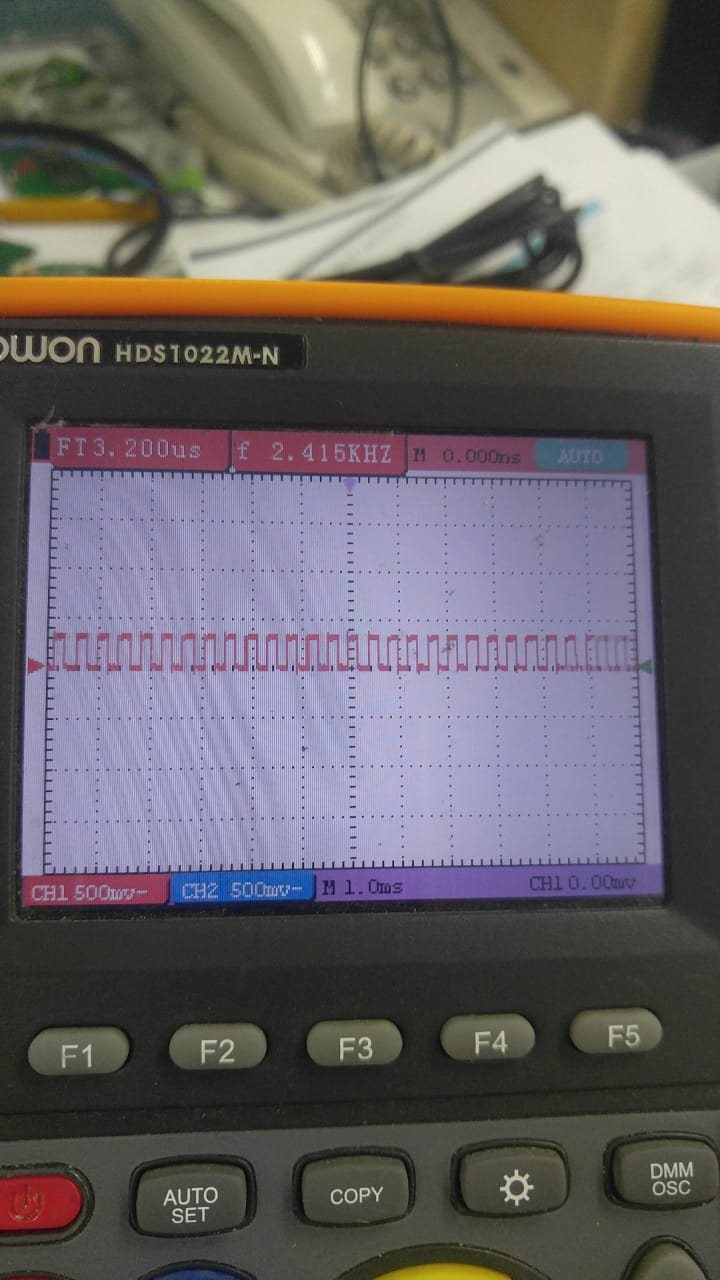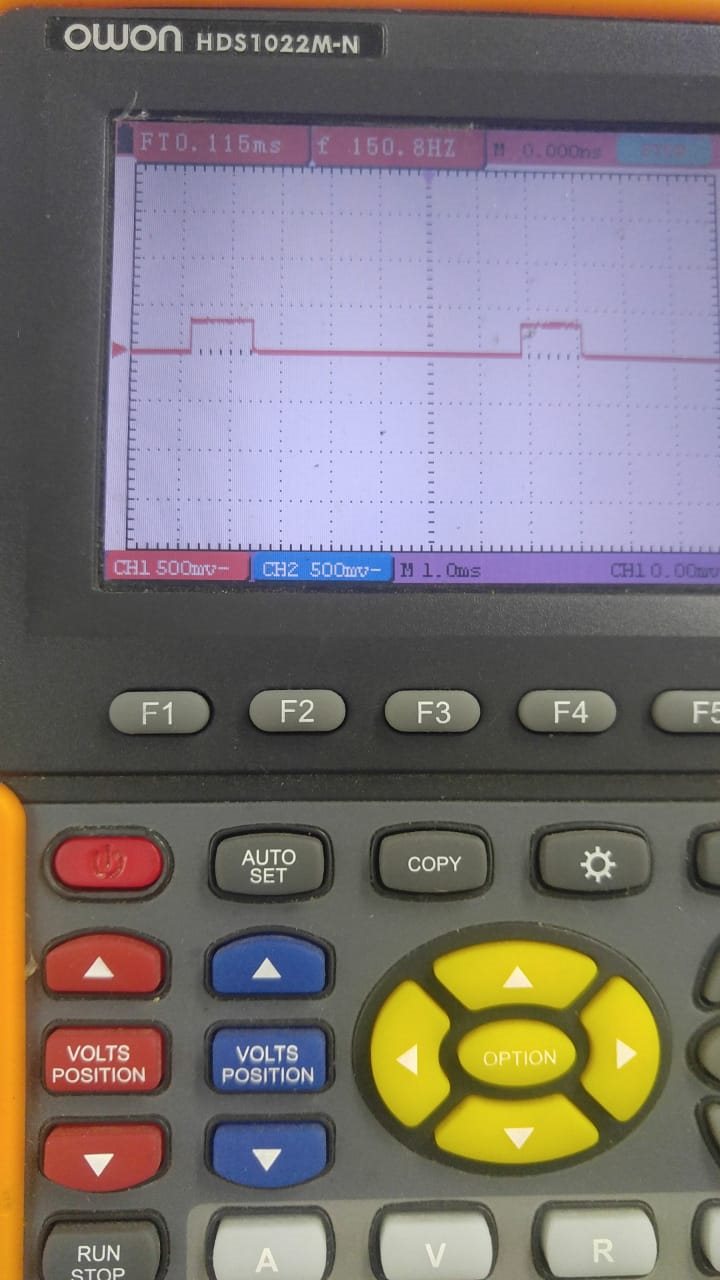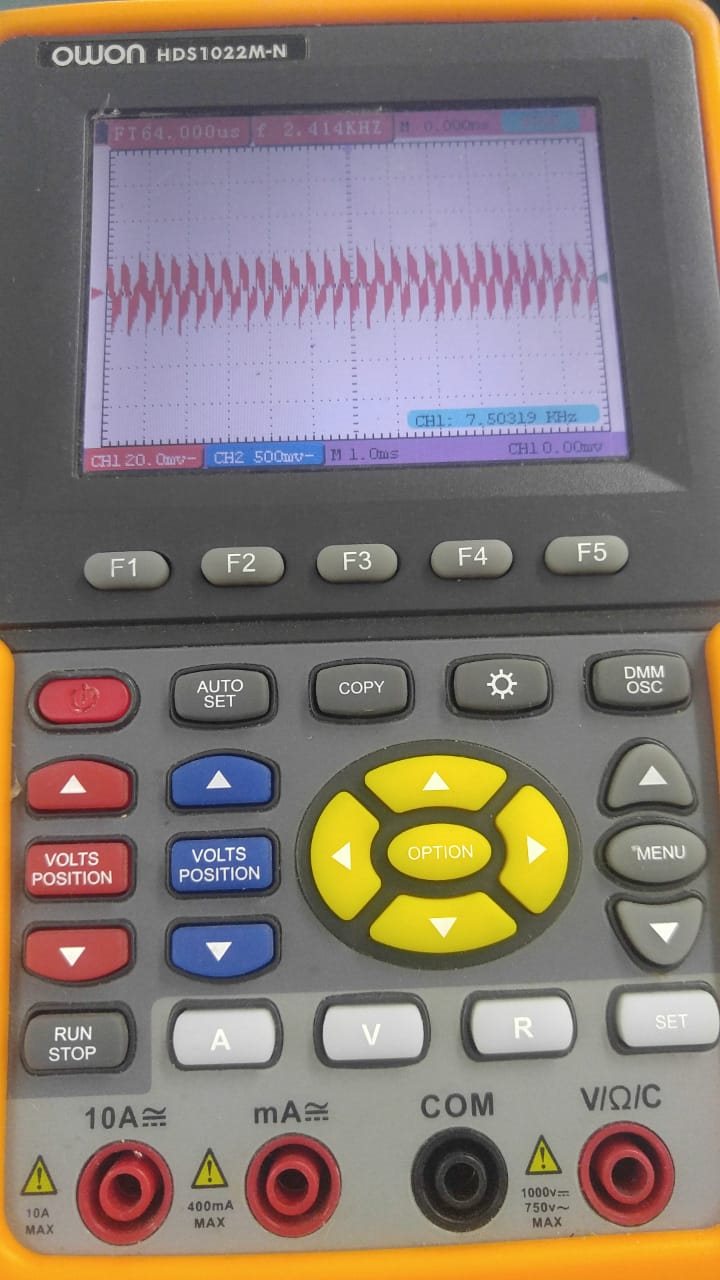Other Parts Discussed in Thread: TIR1000
Tool/software: Code Composer Studio
Hello,
I am using MSP430FR6972 with TIR1000.
My plan is to receive data through IRDA(Rx pin of UART1) and send that data to Serial Monitor via 'UART0'.
I have used PWM program (P1.0) for 16xclock cycle.
I am trying to receive the program,
but it is not working.
I upload the program below.
Can you please tell me,
what I am doing wrong.?
Regards,
Srijit.
int main(void){
WDTCTL = WDTPW | WDTHOLD; // stop watchdog timer
PJSEL0 = BIT4 | BIT5;
PJDIR = 0xFFFF;
//IRRx--------------------------
P1DIR |= BIT0; // P1.0 PWM
P1SEL0 |= BIT0;
//PIN DEFINE===========================================================================
PM5CTL0 &= ~LOCKLPM5; // Disable the GPIO power-on default high-impedance mode
//IRDA================================================================================
CSCTL0_H = CSKEY >> 8;
CSCTL1 = DCOFSEL_3;
CSCTL2 = SELA__LFXTCLK | SELS__DCOCLK | SELM__DCOCLK;
CSCTL3 = DIVA__1 | DIVS__1 | DIVM__1;
CSCTL4 &= ~LFXTOFF;
do //
{ //
CSCTL5 &= ~LFXTOFFG;
SFRIFG1 &= ~OFIFG;
}while (SFRIFG1&OFIFG);
CSCTL0_H = 0;
// LCD_init();
uart_init(); ////UART0
//PWM-------------------------------------------
TA0CCR0 = 103; // PWM Period ( 104......38400Hz that is 16x clock of 2400)
TA0CCTL1 = OUTMOD_3; // CCR1 reset/set
TA0CCR1 = 20; // CCR1 PWM duty cycle P1.0 (3/16 LOW)
TA0CTL = TASSEL__SMCLK | MC__UP | TACLR; // SMCLK, up mode, clear TAR
ird_rx() ;
while(1)
{
//======IRDA==============================
//------receive-------------------------------------------------------------------
// putchar('S');
__bis_SR_register(GIE + LPM3_bits); ////
// putchar(RxByte); ////UART0 ....working properly
__delay_cycles(50000); ////
}
// return 0;
}
IRDA PROGRAM :
void ird_rx(void) /////transmitting valued----data REAL DATA & Receive not working
{
P3SEL0 |= BIT5 | BIT4; // irda operation RX
P3SEL1 &= ~(BIT5 | BIT4);
UCA1CTLW0 |= UCSWRST ; //Transmitting some values
UCA1CTL1 |= UCSSEL__SMCLK ;
UCA1BR0 = 104; //2400 /4 mhz
UCA1BR1 = 0;
UCA1MCTLW |= UCOS16 | UCBRF_3 ;
UCA1IRTCTL = UCIRTXPL2 + UCIRTXPL0 + UCIRTXCLK + UCIREN;
UCA1IRRCTL = UCIRRXPL;
// UCA1IRCTL = UCIRTXPL2 + UCIRTXPL0 + UCIRTXCLK + UCIRRXPL + UCIRRXFL2 + UCIRRXFE + UCIREN;
UCA1CTL1 &= ~UCSWRST ;
UCA1IE |= UCRXIE;
}
#pragma vector=USCI_A1_VECTOR
__interrupt void USCIA1RX_ISR (void)
{
RxByte = UCA1RXBUF;
putchar(RxByte); ////UART0 ....TRANSMIT BY UART0
LPM3_EXIT;
}





